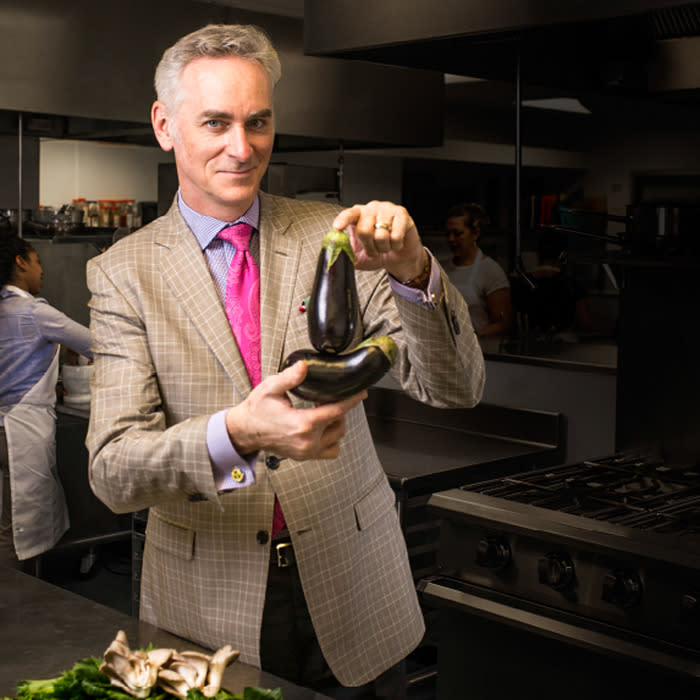Meet the Man Who Wants Doctors to Be Cooks, Too

By Allison Alsup
Dr. Timothy Harlan is creating a different kind of medical-school curriculum that combines hard science with healthy-cooking classes.
Related: The Best 30-Day Meal Plan to Get Healthy
Who He Is
Timothy Harlan isn’t your typical doctor. He started working in restaurants at age 11 and opened his own at 22. But when a family member became seriously ill, Harlan altered his career path and enrolled in medical school. Still, his passion for cooking never waned. Soon after Harlan joined the staff at Tulane University’s medical school, the dean approached him with a problem. The medical community was seeing obesity and preventable-disease rates skyrocketing, but medical schools weren’t teaching future doctors how to communicate basic nutrition to their patients.
Don’t Miss: The One Thing Your Doctor Wants You To Quit (And 5 Ways To Do It)
What He Did
Along with chef and nutritionist Leah Sarris, Harlan created a different kind of medical-school curriculum, one that combines hard science with time at the stove. The program launched in 2012, and in August 2014 the university opened the Goldring Center for Culinary Medicine—the first teaching kitchen at a medical school. There are mandatory modules for first- and second-year students as well as specialized diet-centered electives, such as eating for hypertension, for third- and fourth-year students. Students participate in online lectures, then meet in the kitchen to cook together and share meals. The Center also offers free healthy-cooking classes to community members.
Related: 10 Secrets to Cooking Healthier
Why It’s Cool
Despite being so new, the program is already shaping the next generation of medical professionals. Seventeen medical schools, more than 10 percent nationwide, now license Tulane’s program. Harlan expects that number to rise before the end of this academic year. Tulane also has a vibrant exchange program with the College of Culinary Arts at Johnson & Wales University in Providence. Tulane hosts several of their dietetic interns and 12 medical students go to JWU for a 20-day culinary rotation each year. “I wanted students to be able to have a conversation with their patients about food, not just about micronutrients,” says Harlan. “Prevention and nonmedical treatment has to be part of our toolbox.”
More from EatingWell.com
The One Weight-Loss Soup Recipe You Need
10 Diet Tips That Actually Work (According to Science)

